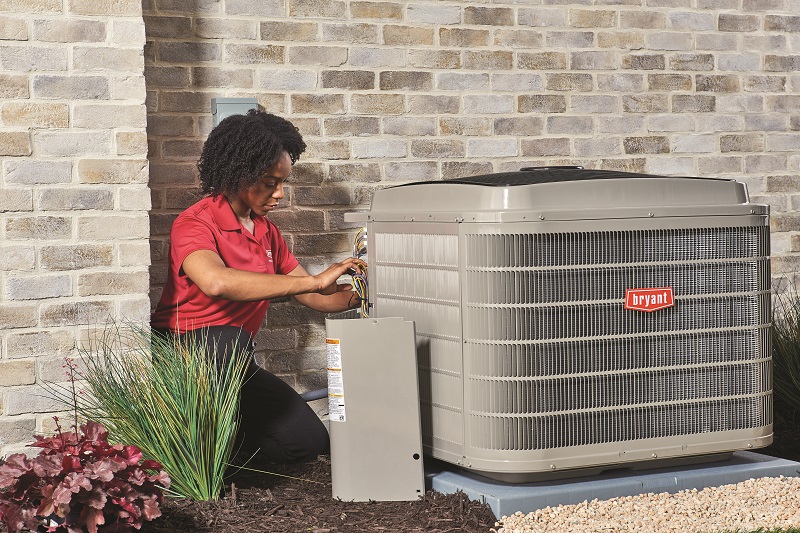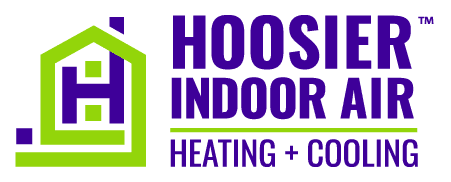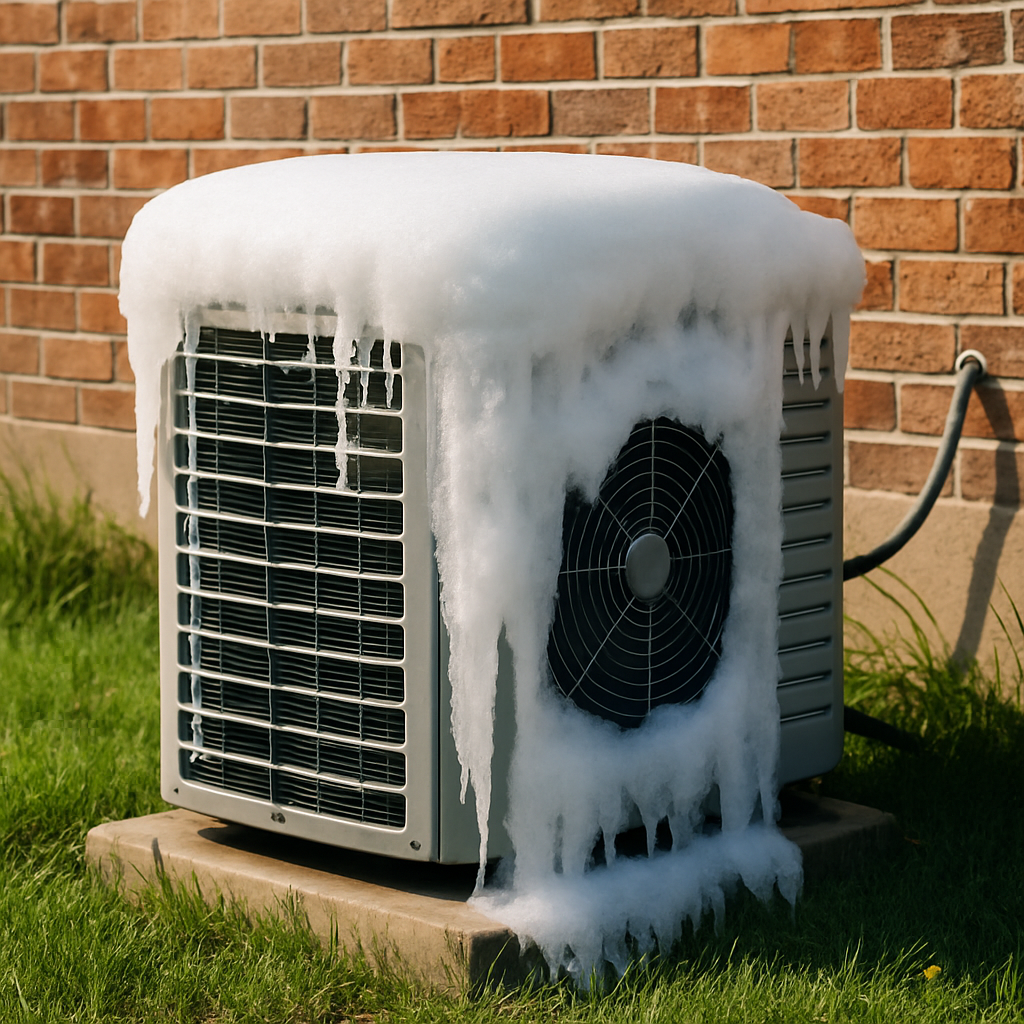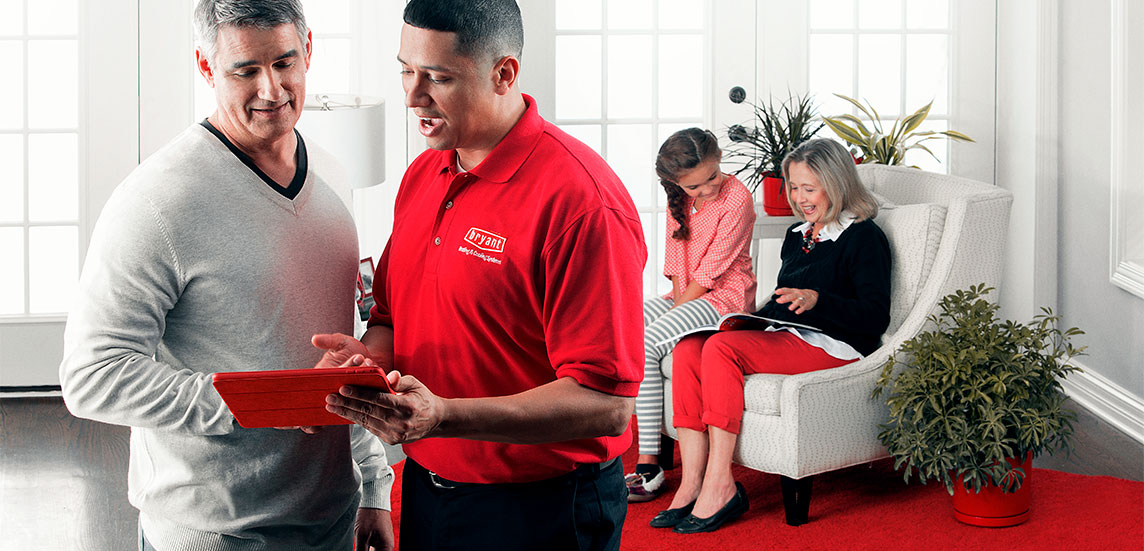“Nearly 90% of air conditioning failures are caused by avoidable issues — including frozen AC units.”
It’s one of the most confusing problems a homeowner can face: your air conditioning system, which should be cooling your home, is literally freezing up. You spot ice on the refrigerant lines, evaporator coil, or even the outdoor unit — in the middle of summer!
At Hoosier Indoor Air, we’ve seen this issue pop up all over Central Indiana — especially when the summer heat hits and HVAC systems are pushed to their limits. So, what makes an air conditioning unit freeze up, and more importantly, how can you prevent it?
Let’s break it down.
What Makes an Air Conditioning Unit Freeze Up?
When an air conditioner freezes up, it’s a signal that something inside your system isn’t working the way it should. Ice forms because refrigerant inside your unit gets too cold, and instead of absorbing heat, it starts freezing moisture in the air.
It doesn’t matter if the temperature outside is 90°F — if something disrupts the balance inside your AC system, it can lead to freezing. If you’re asking, “why is my AC freezing up in Indianapolis?” — here’s what to look for.

1. Inadequate Airflow
Poor airflow is the most common reason AC units freeze up.
If air isn’t flowing smoothly across your evaporator coil, the coil can get too cold and begin freezing the moisture in the air instead of transferring heat.
Common airflow issues include:
- Dirty or clogged air filters
- Blocked return vents
- Closed or obstructed supply vents
- Dirty blower fans
What to do:
Check and replace your air filter monthly during peak usage. Keep vents unblocked and schedule seasonal tune-ups to keep your system clean and running efficiently.
2. Low Refrigerant Levels
Refrigerant plays a key role in your system’s ability to cool. When refrigerant is low — often due to a leak — it causes pressure inside the system to drop. That pressure drop allows the refrigerant to become too cold, which leads to ice buildup on the coils.
Warning signs:
- Ice on refrigerant lines or evaporator coil
- Weak airflow
- Hissing sounds near the unit
Only a licensed HVAC technician should handle refrigerant. We’ll inspect your system, identify leaks, and recharge refrigerant safely.
3. Thermostat Settings Too Low
We get it — Central Indiana summers can be brutal. But cranking your thermostat too low can work against your system.
Most AC units are not designed to run at full blast when outdoor temperatures dip below 60°F or when set to extremely low temperatures for long periods. This can cause the coils to overcool and freeze.
Use a smart thermostat to keep your system balanced and avoid pushing it too hard. Aim for a temperature no lower than 68–70°F, and give your AC time to cycle on and off.
4. Clogged Condensate Drain Line
Your AC removes humidity from the air and drains it away. But if the condensate drain line gets clogged with dust, algae, or debris, moisture can back up inside the system.
That extra moisture — when exposed to overcooling — freezes and causes ice buildup.
What to look for:
- Water pooling around your indoor unit
- Musty odors
- Visible mold or algae growth
Preventive tip: Have your condensate drain line cleaned annually by a professional to keep water flowing freely.
5. Electrical or Component Failure
When electrical parts like the blower fan motor, thermostat, or control board malfunction, airflow and refrigerant levels can become unbalanced. That opens the door to freezing — especially if your system runs without proper cycling.
Burnt wiring or malfunctioning sensors can lead to inconsistent cooling and sudden system shutdowns.
If you suspect electrical problems, call us immediately. These issues can quickly escalate and even pose a fire risk if ignored.
What to Do if Your AC Is Frozen
If your system is already frozen, here’s what to do before calling for help:
Step-by-step:
- Turn your thermostat to “Off” and set the fan to “On.” This helps circulate warm air over the coils and melt the ice.
- Do not attempt to chip away the ice. You risk damaging fragile coil fins.
- Wait 24 hours for the unit to fully defrost.
- Check the air filter and vents. Replace or unblock if needed.
- Call Hoosier Indoor Air for professional diagnosis and repair.
How to Prevent AC Freezing in Summer
Wondering how to avoid AC freezing in summer altogether? Here are our top recommendations:
- Change your air filter every 30–60 days
- Schedule a spring AC tune-up before heavy usage begins
- Use a programmable or smart thermostat
- Keep vents clear of furniture and curtains
- Watch for signs of low refrigerant or water leaks
Routine maintenance is the best way to ensure your air conditioner runs smoothly — and keeps your home cool all season long.
Schedule AC Service in Indianapolis
At Hoosier Indoor Air, we help homeowners across Indianapolis and Central Indiana keep their cooling systems efficient, reliable, and ice-free.
If you’ve been searching “why is my AC freezing up in Indianapolis,” you’re not alone — and we’re here to help. Our licensed technicians will find the root of the issue and fix it fast, so you don’t spend another minute in discomfort.
Ready to get your AC back on track?
Call Hoosier Indoor Air today at 317-466-7437 or schedule your service online!







